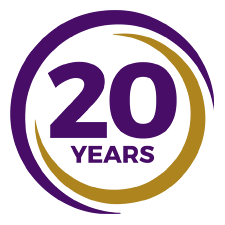Health & Physical Education Courses (Kinesiology)
Required courses
Physical Education I (Kinesiology I) – Trimester 1
Grade 9
1 credit
Prerequisite: None
Also offered as a blended Summer School course to incoming freshmen or those needing credit recovery
This course focuses on the influence of the physical, emotional, mental, moral, social, and spiritual dimensions of health knowledge, attitudes, and behaviors. This course continues the emphasis on health-related fitness and developing the skills and habits necessary for a lifetime of physical activity. The Kinesiology program includes skill development and the application of rules and strategies of complex difficulty in at least three of the following different movement forms: five components of fitness (cardio-respiratory endurance, muscular strength, muscular endurance, flexibility and body composition); aerobic exercise and anaerobic exercise; team sports; individual/dual sports; outdoor pursuits; gymnastics; self defense; and recreational games. Assessment includes both written and performance based evaluations.
Health Education (Kinesiology II) – Trimester 2
Grade 9
1 credit
Prerequisite: None
This course focuses on the influence of the physical, emotional, mental, moral, social, and spiritual dimensions of health knowledge, attitudes, and behaviors. High School health education provides the basis for continued methods of developing knowledge, concepts, skills, behaviors, and attitudes related to student health and well-being. This course includes the major content areas in a planned, sequential, comprehensive health education curriculum as expressed in the Indiana Health Education Proficiency Guide: growth and development; mental and emotional health; community and environmental health; nutrition; family life education; consumer health; personal health; alcohol, tobacco and other drugs education; intentional and unintentional injury; and health promotion and disease prevention. Students are provided with opportunities to explore the effect of health behaviors on an individual’s quality of life. This course assists students in understanding that health is a lifetime commitment by analyzing individual risk factors and health decisions that promote health and prevent disease. Students are also encouraged to assume individual responsibility for becoming competent health consumers. Assessment includes both written and performance based evaluations. A variety of instructional strategies, including technology, are used to further develop health literacy.
Physical Education II (Kinesiology III) – Trimester 3
Grade 9
1 credit
Prerequisite: None
This course focuses on the influence of the physical, emotional, mental, moral, social, and spiritual dimensions of health knowledge, attitudes, and behaviors. This course also emphasizes a personal commitment to lifetime physical activity and fitness for enjoyment, challenge, self-expression, social interaction and lifelong well-being. It provides students with opportunities to achieve and maintain a health-enhancing level of physical fitness and increases their knowledge of fitness concepts. It includes three different movement forms without repeating those offered in Kinesiology I and II. Movement forms will include: five components of physical fitness (cardio-respiratory endurance, muscular strength, muscular endurance, flexibility and body composition); aerobic and anaerobic exercise; team sports; individual/dual sports; gymnastics; outdoor pursuits; self defense; and recreational sports. Assessment includes both written and performance based evaluations. Kinesiology III will also include a discussion of related careers.
Elective Courses
Current Health Issues
Grades 11-12
1 credit
Prerequisite: Kinesiology I, II, III, or Department recommendation
This course focuses on the influence of the physical, emotional, mental, moral, social, and spiritual dimensions of health knowledge, attitudes, and behaviors. This course will focus on specific health issues and/or emerging trends in health and wellness, but not limited to: personal health and wellness; non-communicable and communicable diseases; nutrition; mental and emotional health; tobacco-prevention; alcohol and other drug-prevention; human development and family health; health care and/or medical treatments; and national and/or international health issues. This course provides students with the knowledge and skills of health and wellness core concepts, analyzing influences, accessing information, interpersonal communication, decision-making and goal-setting skills, health-enhancing behaviors, and health and wellness advocacy skills. Assessment includes both written and performance based evaluations.
Elective Physical Education (Strength and Conditioning)
Grades 10-12
1 credit
Prerequisite: Kinesiology I, II, III or Department recommendation; IHSAA athletic physical on file with athletic department
Note: May be taken 1x sophomore year, 2x junior year and up to 3x senior year
This course promotes lifetime sport and recreational activities while providing an opportunity for an in-depth study in specific areas. The following activities will be included: five components of fitness; team sports; individual/dual sports; performance testing; cross training; speed enhancement; power development; plyometric training; weight/Olympic lifting; and recovery practices. It includes the study of physical developmental concepts and principles of sport and exercise as well as opportunities to develop or refine skills and attitudes that promote lifelong fitness. Students will be given the opportunity to design and develop an appropriate personal fitness program that enables them to achieve a desired fitness goal. Assessment will include both written and performance based evaluations.
